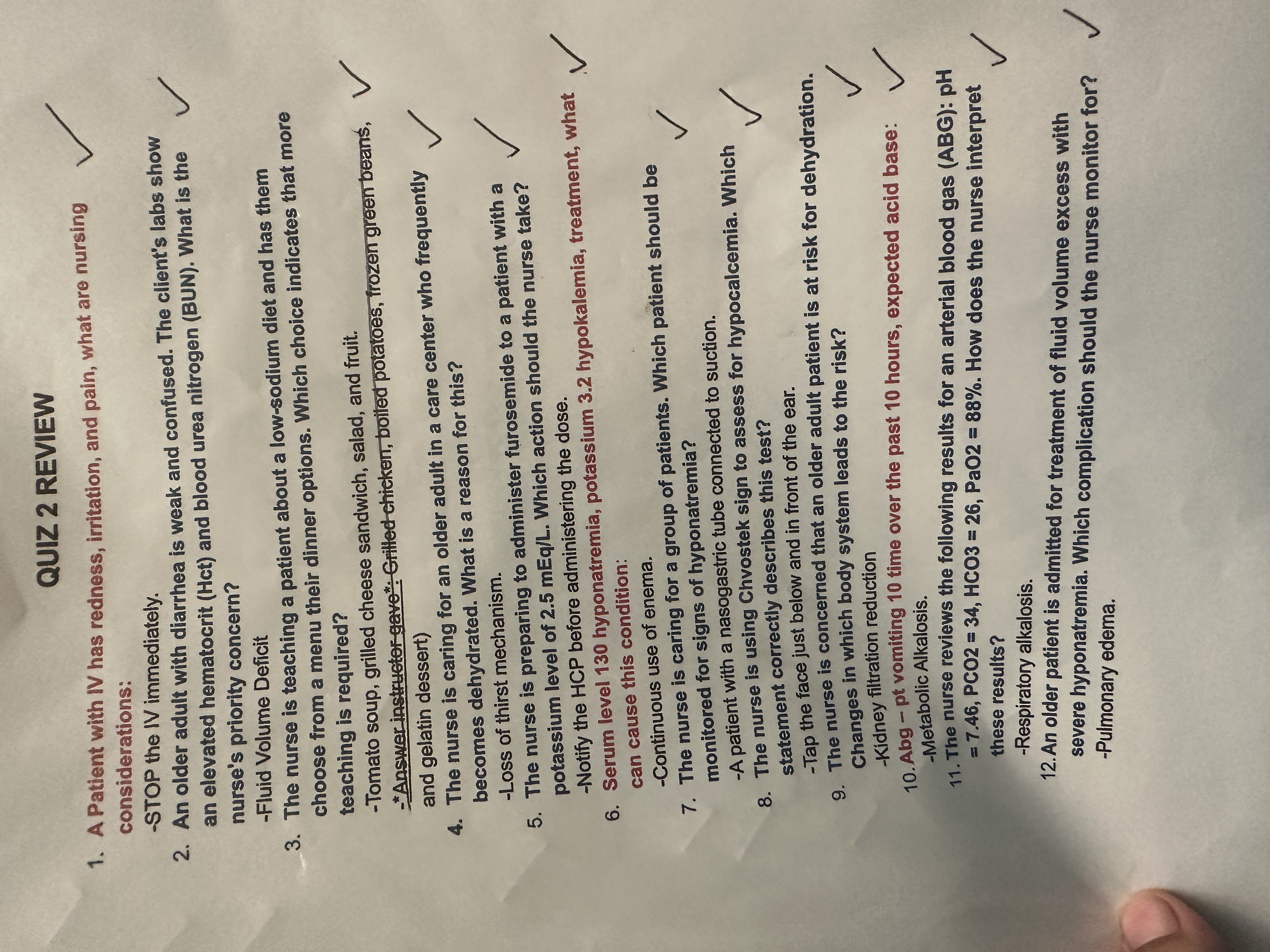A patient with IV has redness, irritation, and pain; what are nursing considerations? An older adult with diarrhea is weak and confused; what is the nurse's priority concern? The n... A patient with IV has redness, irritation, and pain; what are nursing considerations? An older adult with diarrhea is weak and confused; what is the nurse's priority concern? The nurse is teaching about a low-sodium diet; which choice requires more teaching? The nurse is caring for an older adult in a care center who frequently becomes dehydrated; what is the reason for this? The nurse is preparing to administer furosemide to a patient; what action should the nurse take? Serum level 130 hyponatremia, potassium 3.2 hypokalemia, treatment; what can cause this condition? The nurse is caring for a group of patients; which should be monitored for signs of hyponatremia? Describe Chvostek sign assessment. The nurse is concerned about an older adult at risk for dehydration; which body system leads to that risk? ABG - pt vomiting 10 times over the past 10 hours, expected acid base: Metabolic Alkalosis. Review ABG results; how should the nurse interpret these results? An older adult is admitted for treatment of fluid volume excess with severe hyponatremia; what complication should the nurse monitor for?

Understand the Problem
The questions are related to nursing and clinical scenarios involving patient care considerations, fluid balance, and clinical assessments. It focuses on prioritizing nursing actions and understanding lab results.
Answer
The quiz covers nursing considerations, including IV concerns, dehydration risks, low-sodium diets, and electrolyte imbalances.
The photographed quiz addresses various nursing considerations such as stopping an IV if redness, irritation, and pain occur, monitoring for fluid volume deficit in older adults with diarrhea, educating patients on low-sodium diets, and recognizing signs of hyponatremia and metabolic imbalances.
Answer for screen readers
The photographed quiz addresses various nursing considerations such as stopping an IV if redness, irritation, and pain occur, monitoring for fluid volume deficit in older adults with diarrhea, educating patients on low-sodium diets, and recognizing signs of hyponatremia and metabolic imbalances.
More Information
The quiz reviews fundamental nursing actions required in various clinical scenarios, emphasizing assessment and patient education.
Tips
Common mistakes include not immediately recognizing signs of IV complications and misunderstanding dietary restrictions.
Sources
- Chapter 15 Fluids and Electrolytes - Nursing Fundamentals - ncbi.nlm.nih.gov
AI-generated content may contain errors. Please verify critical information